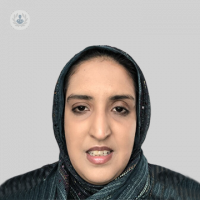An introduction to neurology
Escrito por:Neurology is a fascinating and vital branch of medicine that focuses on the nervous system, which includes the brain, spinal cord, and peripheral nerves. As complex as this field might seem, understanding the basics can empower patients to better navigate their neurological health. Esteemed consultant neurologist Dr Tahira Choudry discusses the key aspects of neurology to help you become more familiar with how this intricate system works and what it means for your health.

What does a neurologist do?
A neurologist is a physician who specialises in diagnosing and treating nervous system disorders. These specialists are trained to manage a variety of conditions ranging from headaches and migraines to more serious diseases like epilepsy, multiple sclerosis, and Parkinson's disease. When you visit a neurologist, they may perform several types of tests to assess your nervous system, including physical examinations, imaging studies like MRI (magnetic resonance imaging), and electrodiagnostic tests such as EEG (electroencephalogram), which measures electrical activity in the brain.
What are common neurological disorders?
There are numerous neurological disorders, each impacting the nervous system in unique ways. Common examples include migraines, epilepsy, and multiple sclerosis (MS). Migraines are severe headaches often accompanied by nausea, vomiting, and heightened sensitivity to light and sound. These can be triggered by factors such as stress, certain foods, and hormonal changes. Epilepsy is a condition that disrupts the brain's nerve cell activity, leading to seizures. These seizures can range from brief lapses in attention or muscle jerks to severe and prolonged convulsions. Multiple sclerosis (MS) is a chronic illness in which the immune system attacks the protective covering of nerves, disrupting communication between the brain and the rest of the body. This can result in symptoms such as fatigue, difficulty walking, and vision problems.
How are neurological disorders diagnosed?
Diagnosing neurological disorders typically involves a detailed medical history and a variety of tests. Your neurologist will ask about your symptoms, when they started, and any factors that might have triggered them. Physical examinations often include checking muscle strength, coordination, and reflexes. Advanced imaging techniques like CT (computed tomography) scans or MRIs are used to get a detailed picture of the brain and spinal cord. Additionally, blood tests might be conducted to rule out other conditions that could be causing your symptoms.
What treatments are available for neurological conditions?
Treatment for neurological disorders can vary widely depending on the specific condition and its severity. Several neurological conditions can be managed with medication. For instance, anti-seizure drugs are used for epilepsy, and disease-modifying therapies for multiple sclerosis. Additionally, physical therapy, occupational therapy, and speech therapy can help patients manage symptoms and maintain quality of life. In some cases, surgery may be necessary to treat neurological conditions. For example, deep brain stimulation can be used to treat Parkinson’s disease, and certain types of epilepsy may be managed with surgical intervention.
Understanding the basics of neurology can significantly impact how you manage your health. If you have any concerns about neurological symptoms or conditions, do not hesitate to consult with a neurologist.
If you would like to book a consultation with Dr Choudry, simply visit her Top Doctors profile today.


